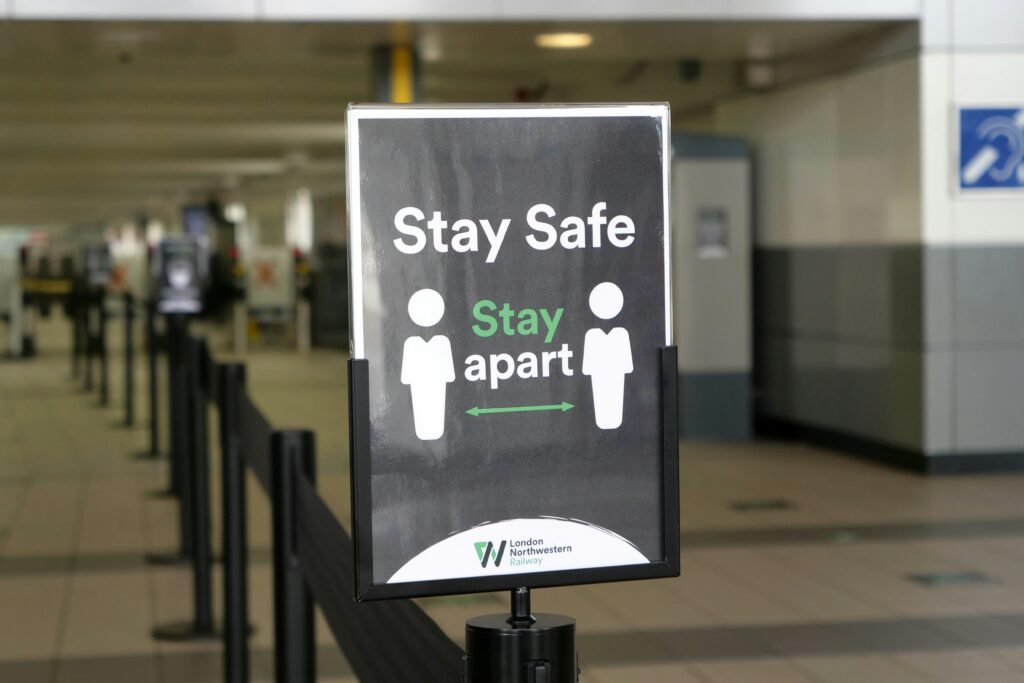Traveling solo can be an incredibly rewarding experience, offering the freedom to explore new destinations at your own pace and the chance to connect with people and places on a deeper level. However, it also requires a heightened awareness of safety to ensure your journey remains enjoyable and trouble-free. Whether you’re a seasoned solo adventurer or planning your first independent trip, knowing essential travel safety tips is key to protecting yourself and making the most of your experience. In this article, we’ll cover practical advice every solo traveler should keep in mind before and during their travels.
Table of Contents
- Preparing Your Itinerary with Safety in Mind
- Choosing Secure Accommodations and Transportation
- Staying Connected While Respecting Local Customs
- Managing Emergencies and Health Precautions on the Road
- To Conclude
Preparing Your Itinerary with Safety in Mind
When crafting your travel plans, prioritizing safety can significantly enhance your experience. Begin by selecting accommodations in well-reviewed, secure neighborhoods and consider proximity to emergency services or transportation hubs. Mapping your daily activities beforehand helps avoid unnecessary wandering in unfamiliar or potentially risky areas. It’s also smart to have flexible plans—stay informed about local events or disturbances through official travel advisories or local news to tweak your itinerary as needed.
Equip yourself with a digital and physical copy of essential documents, including IDs, emergency contact numbers, and insurance information. Share your itinerary with a trusted friend or family member, highlighting your expected check-in times and destinations. Consider incorporating public spaces during daylight hours for solo exploring and include rest periods to avoid fatigue, which can compromise your alertness. When venturing out, always inform someone about your route, trusting your instincts to steer clear of situations or areas that feel unsafe.
- Prioritize destinations with reliable transportation options.
- Use technology wisely—download mapping apps that work offline.
- Keep emergency numbers readily accessible on your phone.
- Plan arrival and departure times with safety in mind, avoiding late-night travel when possible.
Choosing Secure Accommodations and Transportation
Prioritize reputable lodging options by booking accommodations with solid reviews from verified guests. Opt for places that provide secure access, such as electronic key cards or 24/7 staffed front desks, to ensure your safety. Before finalizing your stay, research the neighborhood’s safety and proximity to essential amenities like medical facilities, grocery stores, and public transport. Trusted platforms such as established hotel booking sites can offer additional layers of protection by facilitating secure transactions and offering customer support.
When it comes to getting around, favor well-known transportation providers over unlicensed or informal services. Utilize official apps or company websites to book rides, and always share your driver’s information and live location with a trusted contact. For public transportation, be mindful of peak hours to avoid deserted stops and consider sitting near the driver or in well-populated areas of the vehicle. Carrying a portable phone charger and downloading offline maps can also help you stay connected and oriented throughout your journey.
Staying Connected While Respecting Local Customs
Maintaining contact with loved ones while abroad is crucial, but it’s just as important to be mindful of the cultural norms around communication in your destination. Many countries have specific etiquette around phone use, social media sharing, and public behavior that, if ignored, can unintentionally offend locals or put you in uncomfortable situations. Before you travel, take time to research local customs related to digital communication and public interactions. This simple step can foster positive connections and help you navigate social landscapes with ease.
Consider these practical tips to balance staying connected with cultural respect:
- Ask permission before snapping photos of people or sacred sites, as some may view it as intrusive.
- Limit phone usage in communal or religious spaces to avoid disrupting the environment or drawing unwanted attention.
- Adjust your communication style by learning common greetings or expressions in the local language—it goes a long way in showing respect and appreciation.
- Use technology wisely: leverage offline maps and translation apps to reduce dependency on constant internet access, which may be limited or costly.
Managing Emergencies and Health Precautions on the Road
When traveling alone, being prepared for emergencies is not just smart—it can be lifesaving. Start by assembling a compact emergency kit that includes essentials such as a first aid kit, flashlight, extra batteries, and any personal medications. Keep a list of emergency contacts both digitally on your phone and in a hard copy, including local emergency services, your country’s embassy, and a trusted friend or family member. Additionally, always inform someone close to you about your travel itinerary and check in regularly to provide updates on your whereabouts.
Health precautions are vital to keeping your journey smooth and stress-free. Prioritize staying hydrated and nourished, and make it a habit to wash your hands regularly or use hand sanitizer, especially after touching public surfaces. Carry basic health supplies like pain relievers, allergy medication, and motion sickness tablets. Be aware of any vaccinations or health advisories relevant to your destination. Lastly, trust your instincts—if you feel unwell, seek medical attention promptly rather than pushing through, as early intervention can prevent minor issues from becoming serious complications.
- Pack a versatile first aid kit that suits your specific health needs.
- Keep emergency contacts accessible and share your plans with someone reliable.
- Stay informed about local health risks and safety regulations.
- Practice good hygiene to avoid common travel illnesses.
- Don’t hesitate to seek medical help if you feel unwell during your trip.
To Conclude
Traveling solo can be an incredibly rewarding experience, offering freedom, self-discovery, and a chance to connect with new places and people. By keeping these essential safety tips in mind—staying aware of your surroundings, securing your belongings, trusting your instincts, and preparing ahead—you can help ensure your journey is both enjoyable and safe. Remember, being cautious doesn’t mean being fearful; it means being smart and proactive. Embrace the adventure with confidence, and let your travels enrich your life in meaningful ways. Safe travels!
Related Products
-
Cabeau Travel Neck Pillow for Airplanes – The Neck…
Travel $49.99 -
Sale!
Dot&Dot Twist Memory Foam Kids Travel Pillow for A…
Travel Original price was: $31.99.$24.99Current price is: $24.99. -
Rewondah Inflatable Travel Pillow for Sleeping Air…
Travel $12.96

